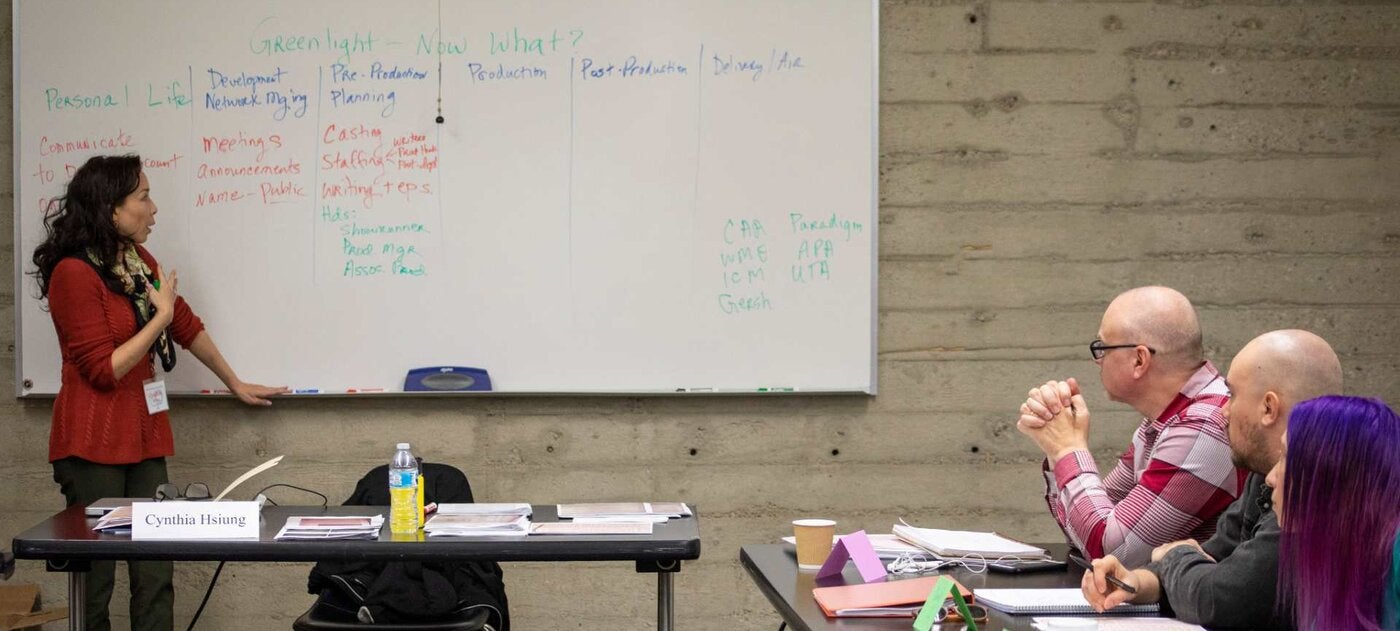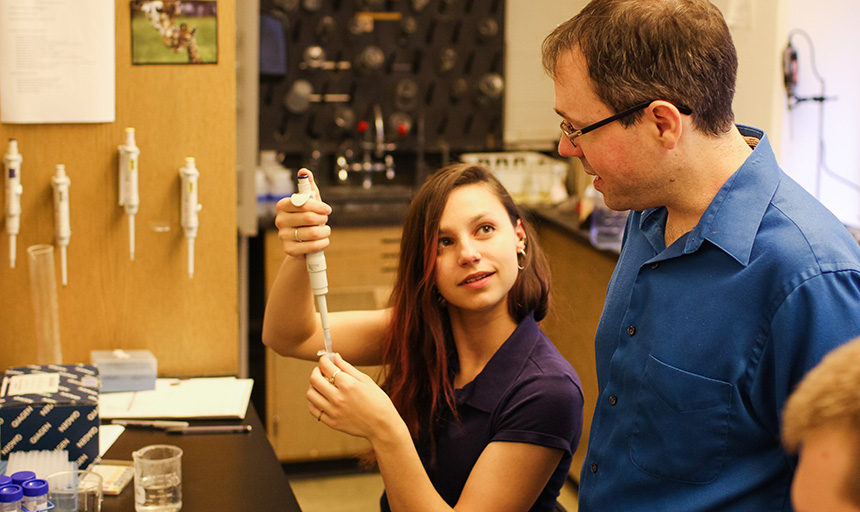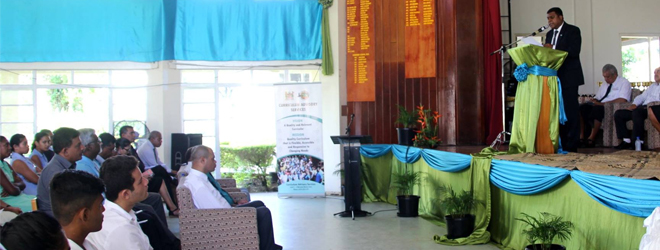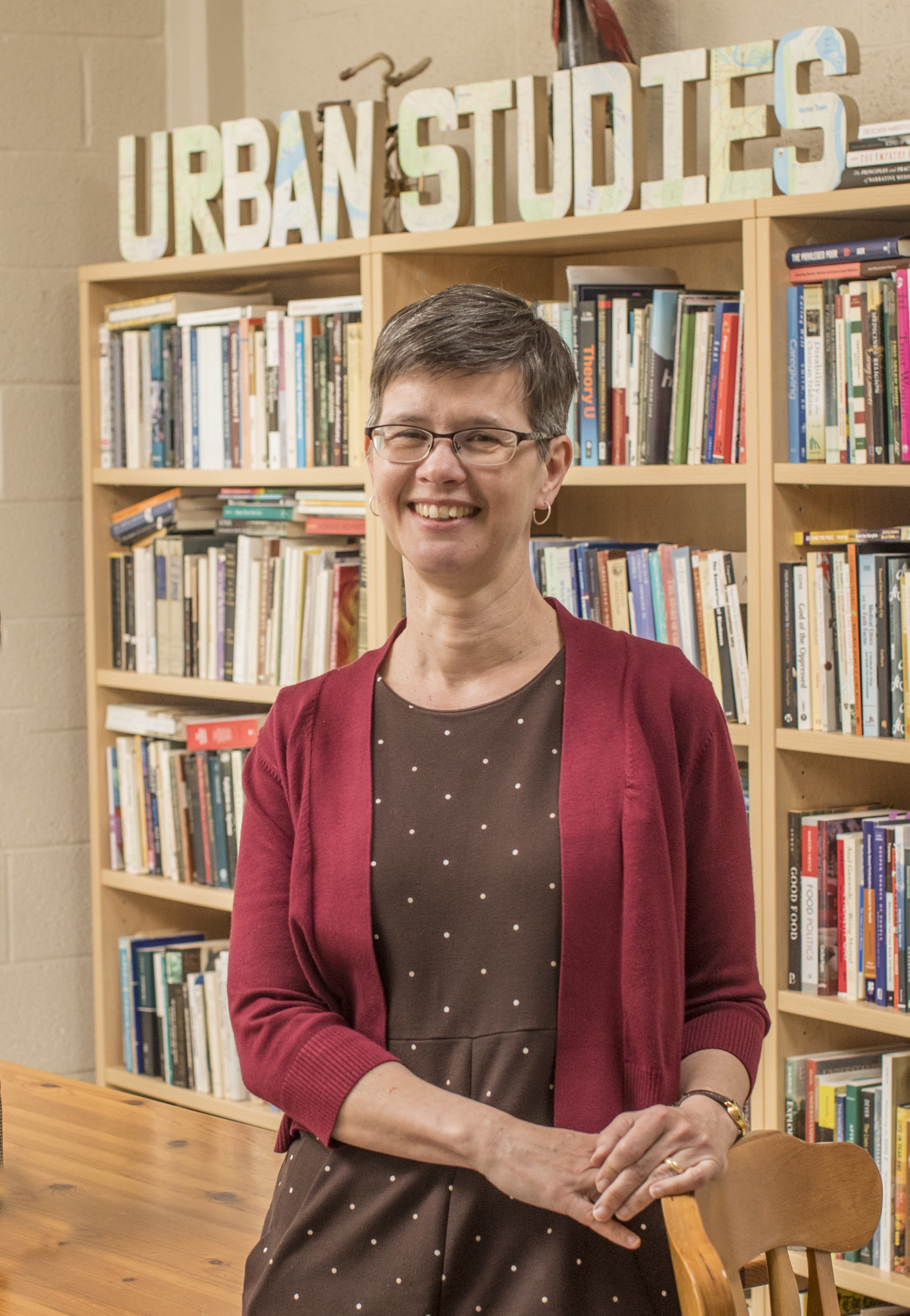Degree Students should finish their degree or program within 150% times the published amount of time the curriculum would normally require. (Example - Curriculum requires 75 hours to complete. Students have 112 hours to complete curriculum). For calculating 150%, PCC considers all courses taken at PCC and those that transfer in from another school that apply to their major. If a student has previously graduated from a curriculum, the previous credits transferable toward that new curriculum are counted. Students appealing for 150% will also be required to submit an electronic Student Educational Plan developed through the institution's advising module from their advisor as part of their appeal.
Students who attend beyond the allowable time will not be eligible to receive financial aid. Students with special circumstances appeal to the Financial Aid Appeals Committee. Upon the request of the student, PCC will grant a full refund of tuition and fees to active duty military personnel who are called to active duty or who have received temporary or permanent reassignment making it impossible for them to complete their course requirements.
This policy also applies to military reservists and National Guard personnel called to active duty. Student must submit a copy of their military orders to the Registrar's office. The student will then be withdrawn from classes with a full refund of tuition and fees. The College bookstore will also buy back textbooks to the extent allowable under the bookstore's buy back procedures. Coursework will be transcribed as an Official Withdrawal but will not count towards the eight Official Withdrawals allowed under PCC's Official Withdrawal Policy. National Guard service members placed onto State active duty status while enrolled will be given an excused absence for the period of time the student is on active duty and will be allowed to make up any test or other work missed.
In cases where work cannot be made up, students will receive a refund of tuition and fees for the course and will be allowed to re-enter the program and re-enroll as soon as the class is offered again. Students must communicate with the course instructor before leaving on active duty and should consult with each instructor to develop a plan for making up missed tests or coursework. CMC students participating in the College's Washington Program continue to pay CMC tuition and the ASCMC fee to cover the costs of the academic program, special events, field trips, and transportation.
Expenses for housing, meals, health insurance, and local transportation are the responsibility of the participants. Program, then withdraws, a $500 withdrawal fee will be added to the student's account. Students receiving financial aid continue to receive state and federal aid, as well as private and merit scholarships. Students with CMC grants-in-aid will also continue to receive their grants.
For students on the Washington Program, the total financial aid package received will include a moderate increase in aid to compensate students for the higher cost of living in Washington, D.C. To be eligible to receive financial aid, a student must enroll in an eligible curriculum leading to a degree or diploma. Students must also have a high school diploma from a high school recognized by the Department of Education or GED®, must maintain satisfactory academic progress, and may not owe a repayment on a grant nor be in default on an educational loan. Financial aid will only pay for courses that are required by the student's current major. The Carolina Covenant at UNC promises that youth from low-income families eligible for the program can graduate with a bachelor's degree and no debt. The waiver requires completing the waiver portion of the Student Health Insurance Enrollment and Waiver form.
The completed Student Health Insurance Enrollment and Waiver form must be submitted to the campus services office no later than 5 p.m. The academic records of all students admitted to Florida Tech for the first time will be considered sufficient to allow them to apply for financial aid. To remain eligible to receive financial aid, continuing students must meet the following satisfactory academic progress standards instituted by the university in accordance with federal law. Florida Tech applies standards equally between undergraduate and graduate students, in all academic programs.
Trustee Shaw Wagener '81, who was an international relations major at Claremont McKenna and studied abroad in Russia, before becoming a national leader in emerging market investment, supports this scholarship program. The Global Scholars program provides direct financial support for students who qualify for need-based aid, first-year summer internships, and stipends for students on financial aid to go abroad in the spring semester of their sophomore year to non-English speaking countries. For those Wagener Scholars who meet specific benchmarks, additional summer internship and summer savings support is available beyond the first year.
Applicants must demonstrate an interest in global affairs, spending time abroad and learning new languages. Recipients receive funding support for an internship, research or academic travel immediately following the first year, and a study abroad program in the second semester of sophomore year to a non-English speaking country. There are up to six entering first-year students awarded yearly. CMC students participating in the SVP pay CMC tuition and the SVP room fee to cover the costs of the academic program, special events, field trips, and housing. Expenses for meals, health insurance, and local transportation are the responsibility of the participants. If a CMC student commits to the Silicon Valley program and then withdraws prior to a housing commitment, a $500 withdrawal fee will be added to the student's account.
If housing has been secured for the student, a $1000 withdrawal fee will be added to the student's account. Gordon College encourages its best and brightest students to apply for grants and scholarships for postgraduate study. Pamela Thuswaldner, the Gordon College Fulbright Program advisor, guides students through the application process as they submit draft research and/or teaching proposals, collect required forms, prepare for their campus committee interview, and complete their applications. In 2008 Emily Fisher, a 2005 Gordon College graduate with a psychology major, was awarded a Fulbright student grant to study health promotion philosophy and research methodology at the University of Bergen.
Ms. Fisher was the fourth Fulbright recipient from Gordon College in the last three years. The Fulbright Student Program is designed to give recent B.S./B.A. Graduates, master's and doctoral candidates, young professionals and artists opportunities for personal development and international experience. Participants are chosen for their leadership potential and have the opportunity to observe each other's cultures, exchange ideas and teach or undertake research and graduate study. Berea College is widely known for offering high-quality education, with no tuition for any of their students. Accepted students pay close to $1,000 per year for their housing, food and fees, and have access to financial assistance for books.
To make the free tuition possible, each student is required to work 10 hours of work study per week, which can be applied to working in service jobs on or around campus, or to selling their crafts in college sponsored craft venues. Many students who have attended Berea made note of the fact that they were able to focus so much more on their studies knowing they would be graduating with significantly less debt than most other academic options. If you decide to withdraw from a class or from the University after the beginning of classes for an academic period, please contact Student Financial Services prior to your withdrawal. The financial aid awarded to you is based on the expectation that you will remain enrolled for the entire quarter.
If you withdraw from classes, we must calculate how much of your Federal Student Aid you have actually earned and return any unearned funds to the Department of Education. In addition, if you received a refund of financial aid to assist with your education related and/or living expenses, you may need to repay those funds as well. If, upon withdrawal, you are entitled to a refund of charges (i.e., tuition, fees, room or board), a portion of that refund may have to be returned to the financial aid programs from which you received assistance, including loan programs. The amount to be returned will be calculated according to federal guidelines. If the satisfactory progress check after the end of the probationary period is failed, students may only continue to receive their aid if they are meeting the requirements of their academic plan. Students over the maximum time frame for program completion; can only use financial aid to pay for courses required for their degree or eligible program.
Undergraduate student account balances must be settled by August 17th for fall and January 5th for spring. Graduate student account balances for Fall A and B sessions must be settled by August 17th and C sessions by October 11th. Balances for Spring A and B sessions must be settled by January 5th and C sessions by March 1st. Students should apply for financial assistance before the payment due date.
Students not complying with the above policy will be denied on campus move in, receive a late fee and/or have classes removed. The university does not release student academic records if educational costs are not paid. Students will not be allowed to register for classes if there is a hold on the account.
A student can be placed on financial aid warning for multiple reasons. If their cumulative grade point average falls below academic progress standards or if they are not meeting the minimum required pass rate. Students can also be placed on warning status if they fail to meet both of these standards.
Students will be eligible to receive federal financial aid during their warning semester. Deep Springs College offers a full scholarship, which includes room, board and tuition to every student admitted into this unique school. This scholarship opportunity is awarded regardless of the students' financial need.
There are, however, additional scholarships that can provide aid for incidental expenses and travel for students with financial need. To achieve admission students must have a second interview on campus, and there are funds to cover this cost for students who need it, so as not to exclude anyone from the application process. Transfer students are welcomed to apply, though application is not open to students who have already achieved a postsecondary degree at another institution.
Central Christian College of the Bible holds strong values around supporting students to have the best education possible, that supports Christ-centered leadership, that is affordable. Each semester the college offers 100 full tuition scholarships to both new students and transfer students. Each student should be admitted to attend classes on the Moberly campus, and they must be enrolled in a certificate or degree program. This opportunity to receive a full tuition award covers up to 17 hours per semester for students who are residential or commuters. Each student must achieve high standards as far as both grades and a commitment to Christian service to maintain the award. Tuition for full-time Melbourne campus undergraduate students (12–19 credit hours) is charged on a flat rate by semester basis.
Flat rate by semester tuition rates apply to the fall and spring semesters only. Melbourne campus undergraduate students registering for more than 19 semester credit hours pay per credit hour for the excess credit hours in addition to the semester flat rate. Summer tuition and tuition for part-time undergraduate students and all graduate students, except those seeking the Psy.D. Florida Tech Online and extended studies students pay tuition on a per-credit-hour basis. Students may receive up to $12,000 per year if the student's cumulative GPA is 3.0 or higher and the student has completed 24 transferable semester credit hours at one or more other accredited institutions.
This scholarship is for students who have graduated from high school and attended another college or university, and plan full-time attendance in one of the Melbourne campus degree programs. The scholarship is mutually exclusive and cannot be combined with the Florida Tech Phi Theta Kappa Scholarship or other merit scholarships. For purposes of financial aid, only transfer credit hours officially accepted for the student's program of study will be automatically counted in the attempted and successfully completed credit hours toward the quantitative and maximum Time Frame. Various programs of Rosalind Franklin University may have different standards and requirements regarding acceptability of transfer credits and calculations will be based on the program in which the student is enrolled. Federal regulations state that students will not be eligible to receive financial aid once they have attempted more than 150% of the normal credits required for their degree program.
At Gordon, students will no longer to eligible to receive financial aid once they have attempted 186 credit hours. To ensure that students will finish their program within this timeframe, Gordon requires that 67% of cumulative credits attempted be completed in order to meet this requirement. A student's completion percentage is determined by dividing the number of attempted cumulative credit hours by the number of cumulative credit hours that were earned. Boston College international programs are open to BC undergraduate students who meet the requirements for study abroad as outlined by their Academic Dean. In order to be eligible for admission, students must be in good academic standing with a GPA of 3.0 or higher and have a clean disciplinary record. Final approval is at the discretion of the OIP, deans, and Student Affairs.
Many programs have additional requirements and a selective application process; students should consult with the OIP for specific admission requirements. Boston College approves an equal number of students for study abroad in the fall and spring semesters and not all applicants can be approved for their preferred term; students are to plan accordingly. Under a student health insurance plan, every undergraduate would be enrolled, and premiums would be covered by financial aid. Those who have credible insurance that covers them at Sewanee would provide documentation to remain under that plan. In the industry, this is known as a "hard waiver," and it's put in place to make sure students have health insurance.
This is the system used at other colleges that offer health insurance, schools like UNC, Washington and Lee, Davidson, and even our cross-state rival, Rhodes College. So do Morehouse College, Hendrix College, Spelman College, Southwestern University, and Trinity University. Curtis Institute of Music, since its inception in 1928, has maintained an all-scholarship policy. Regardless of students financial and economic status, every accepted student receives a merit based/ full-tuition scholarship. This policy includes both graduate and undergraduate students, and these benefits are renewed each year that the student is enrolled. There is no financial aid application requirement for any students.
If students require further financial aid, there are many work study options that include on-campus employment in a variety of disciplines. There are additional supplemental grants which may include housing and dining options for students who may require such support. Students are, however, expected to utilize non-Curtis support options prior to seeking supplemental funding. The University of North Carolina-Chapel Hill shares the Robertson Scholars Leadership Program with Duke University, where they select several young leaders who are invested in creating social change. This is a prestigious program that honors a diverse group of students who have shown stellar academic achievement and leadership within their communities. Each recipient receives a four-year scholarship, which includes full undergraduate tuition, room and board, as well as coverage additional required expenses.
Scholars are given three summers of international and domestic experiences, as well as participation in professional development and leadership opportunities. Scholars also have access to alumni, staff and a community of peer scholars. Duke University offers the Robertson Scholars Leadership Program to a select number of young people invested in creating societal transformation. Annually, this program selects a diverse body of students who show such promise and potential.
Many principles of collaboration, community building and change making are fostered throughout the scholarship experience, providing students with valuable skills that will impact their life and career journeys. Each July 1st, the federal government establishes a new interest rate for loans made that academic year. Once established, the interest rate is fixed for the life of the loan. Interest on the Federal Direct PLUS Loan begins to accrue at disbursement. Federal Parent PLUS Loans bear an origination fee, which is retained by the federal government to offset the cost of the program. Loans are disbursed in two equal installments not earlier than 10 days before the start of each semester for eligible students.
The first scheduled payment is due 60 days after the full disbursement. These loans have a 10-year repayment term, with no prepayment penalty, and may be deferred while the student is enrolled at least half-time. CMC students participating in study abroad or international exchange programs are charged CMC tuition, room, and board fees. CMC pays the study abroad or international exchange program tuition and fees, including room and board. CMC provides a meal allowance for students participating in programs which do not include meals.
CMC also provides a travel allowance toward the cost of the round-trip airline ticket from Los Angeles to the study abroad destination. An allowance for local transportation and for international health insurance is also frequently provided as determined by program needs. Tuition and required fees will be prorated based on the number of days a student is in attendance at CMC, up to the 60 percent point of the semester.
Students suspended or dismissed from the College for disciplinary reasons during the semester are not eligible to receive refunds. Students who received federal financial aid are subject to a pro-rata return of federal funds. If the satisfactory progress check after the end of the probationary period is failed, students may only continue to receive their aid if they are meeting the requirements of their Academic Plan.




























No comments:
Post a Comment
Note: Only a member of this blog may post a comment.